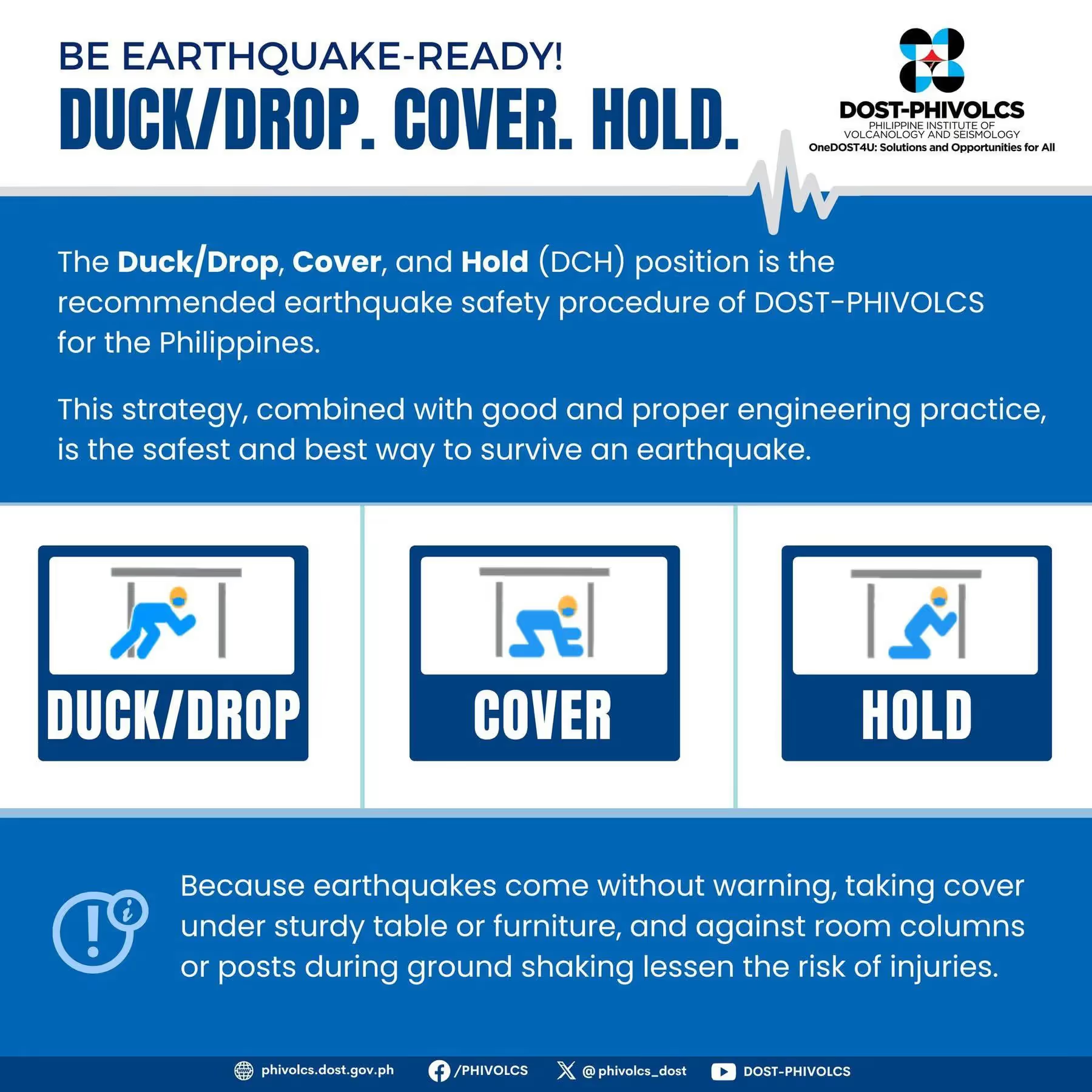
Blog
What to Do Before, During, and After an Earthquake
October 17, 2025
What to Do Before, During, and After an Earthquake
Earthquakes have been occurring more frequently than usual, so it’s important to stay safe and secure. Living in a country along the Pacific Ring of Fire means that tremors can happen without warning, but being ready can make all the difference. Earthquake preparedness is about knowing what to do before, during, and after the shaking stops to keep yourself and your loved ones safe. Here are some practical tips to help you stay alert, calm, and prepared in case an earthquake suddenly strikes your area.
Start preparing at home BEFORE an earthquake
- The best time to prepare for any disaster is before it happens. Secure your home or unit and belongings safely.
- Know where the safest spots are (under sturdy tables, away from glass windows).
- Prepare an emergency supply kit that is accessible at all times. List essentials: bottled water, easy snacks, a first-aid kit with meds, important documents, a whistle, and extra clothes.
- Learn how to use a fire extinguisher and how to use your unit’s alarms.
- Know how to switch off water lines, gas tanks, and your circuit breaker in the event of an emergency.
- Always participate if your building ever does an earthquake drill, so you can know the designated and safest way out if such an event ever happens.
- Follow credible sources like PHIVOLCS and NDRRMC for updates.
- Familiarize yourself with the evacuation areas around your place. Check the nearest route going there, and make sure you know the right places to traverse.

Drop, cover, and hold on DURING the earthquake
- Drop to the ground before the shaking knocks you over.
- Take cover under a sturdy piece of furniture like a table or desk.
- Hold on until the tremors stop. This helps protect you from falling objects and debris, which are among the most common causes of injuries related to earthquakes.
- If you’re indoors, stay where you are. Avoid running outside, as falling glass or debris can be more dangerous than staying put.
- Move away from windows, mirrors, and tall furniture that could topple.
- If you’re outdoors, head to an open area away from buildings, trees, or power lines.
- If you’re inside a vehicle, stop safely at the side of the road and stay inside until the shaking stops. Do not cross bridges, overpasses, or anything that could collapse.
- If you are near shore, move quickly to higher ground.
- Move away from steep slopes that can change due to the ground moving.
- Stay calm. Protect your head and neck with your arms or any object nearby, like a bag or pillow.
- Reassure those around you, especially children or elderly companions. Panicking can lead to injury or poor decisions, so focus on staying safe until the shaking ends.
Stay safe, and stay alert AFTER the earthquake
- Once the shaking has stopped, take a moment to breathe and assess your surroundings.
- Aftershocks can follow, sometimes strong enough to cause additional damage.
- Evacuate as soon as possible once the shaking has stopped. Take the fastest and safest way out.
- Check yourself and those around you for injuries and administer first aid if possible.
- If you’re at home, inspect your surroundings for hazards such as cracks in the walls, broken glass, or gas leaks.
- Turn off electricity and gas lines if you suspect damage to avoid fires or explosions.
- Avoid using elevators until authorities declare them safe.
- Keep your communication lines open.
- Listen to updates from reliable sources such as radio stations, PHIVOLCS, or NDRRMC for information about potential aftershocks, road closures, or evacuation advisories.
- If your place is unsafe, move to a designated evacuation site and bring your emergency go-bag.
- Lastly, remember that recovery is a community effort. Check on your neighbors, especially the elderly or those living alone, and lend help where you can. Small acts of care can make a big difference in maintaining calm and rebuilding together.
Sources:
- Earthquake Authority
- Red Cross
- Ready.gov
- PHIVOLCS-DOST


